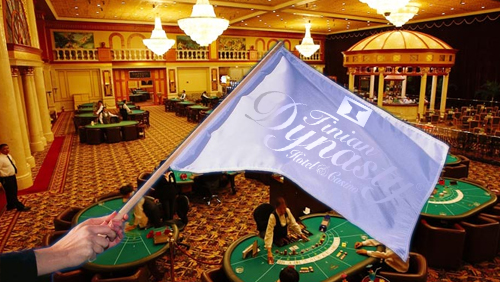Tinian Dynasty Hotel and Casino’s failure to report its casino activities has cost the struggling resort millions in penalties.
 The U.S. Attorney for the Districts of Guam and the Northern Mariana Islands recently announced that it has forfeited $2.5 million from Hong Kong Entertainment Investments Ltd., which operates Tinian Dynasty, Marianas Variety reported.
The U.S. Attorney for the Districts of Guam and the Northern Mariana Islands recently announced that it has forfeited $2.5 million from Hong Kong Entertainment Investments Ltd., which operates Tinian Dynasty, Marianas Variety reported.
“This forfeiture is the culmination of a year-long investigation. The persistent and dedicated efforts of IRS criminal investigators were instrumental in recovering these funds,” U.S. Attorney Alicia A.G. Limtiaco said in a statement.
In July 2015, both parties entered into a non-prosecution agreement that required Tinian Dynasty to “administratively forfeit $536,969.12” in addition to the $2.5 million indicated in the U.S. district court’s final order of forfeiture. The amount is said to be the largest forfeiture ever collected by the United States in the Northern Mariana Islands.
“The agreement also obligates TDHC to fully cooperate with the United States in ongoing criminal investigations and to comply with federal reporting and other regulatory requirements,” the U.S. Attorney’s Office said in a statement.
Court filings stated that the hotel and casino failed to identify and disclose all persons whose gambling activities should have triggered a report. Authorities believed Tinian Dynasty failed to document over $138 million in reportable cash transactions and also failed to report 3,640 separate cash transactions from October 2009 to April 2013.
A federal law known as the Bank Secrecy Act requires financial institutions and businesses, including casinos with annual gaming revenue above $1 million, to be vigilant in detecting and reporting activities that may indicate money laundering or other financial crimes.
“The Bank Secrecy laws were enacted to curtail the movement of ill-gotten gains through our financial institutions. When one of those entities shirks their duty and fails to comply with the law requiring the examining and reporting of certain financial transactions, it creates an entry point for would-be criminals to circumvent rules intended to frustrate and detect their criminal enterprises,” said Teri Alexander, special agent in charge of IRS Criminal Investigation.
Last December, Hong Kong Entertainment Investments filed a Chapter 11 petition “to continue doing business.” In its filing, the casino owner declared that it owed a total of $285.5 million to creditors, way beyond its total assets, which amounted to $55.2 million.
Hong Kong Entertainment listed over 200 creditors in its filing, including the U.S. Department of Treasury’s Financial Crimes of Enforcement Network, IRS and the CNMI Treasury.